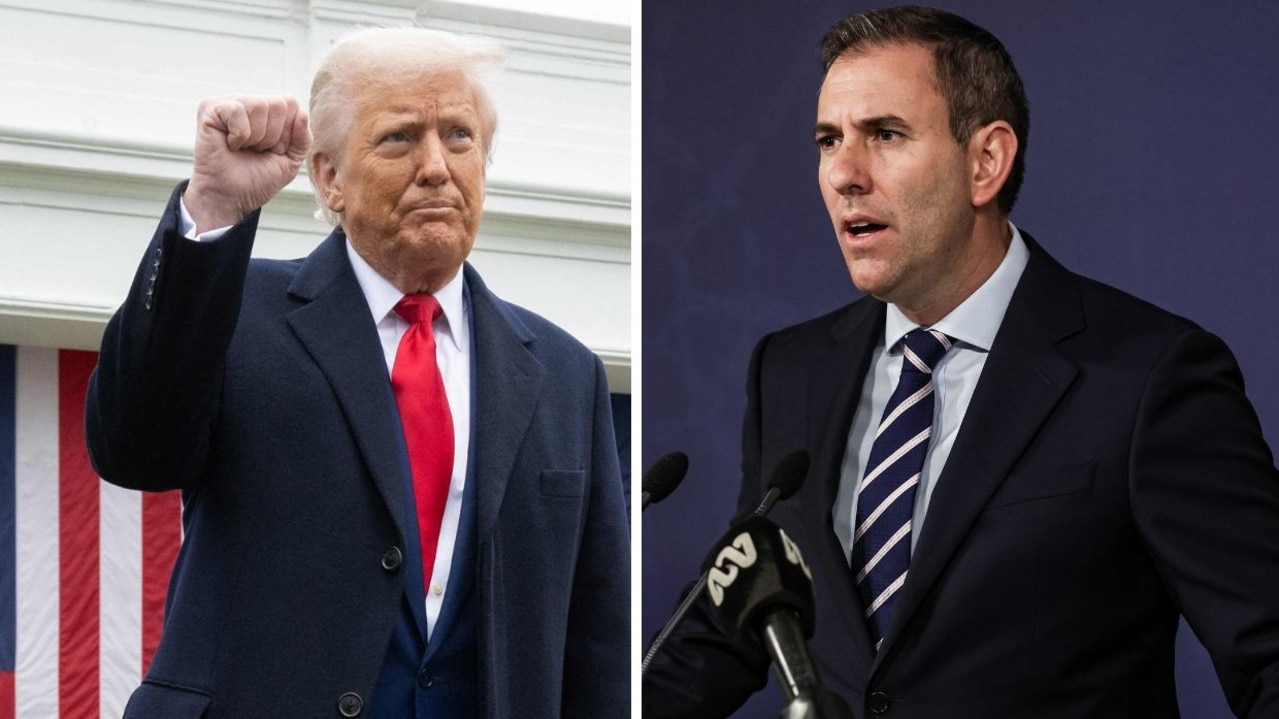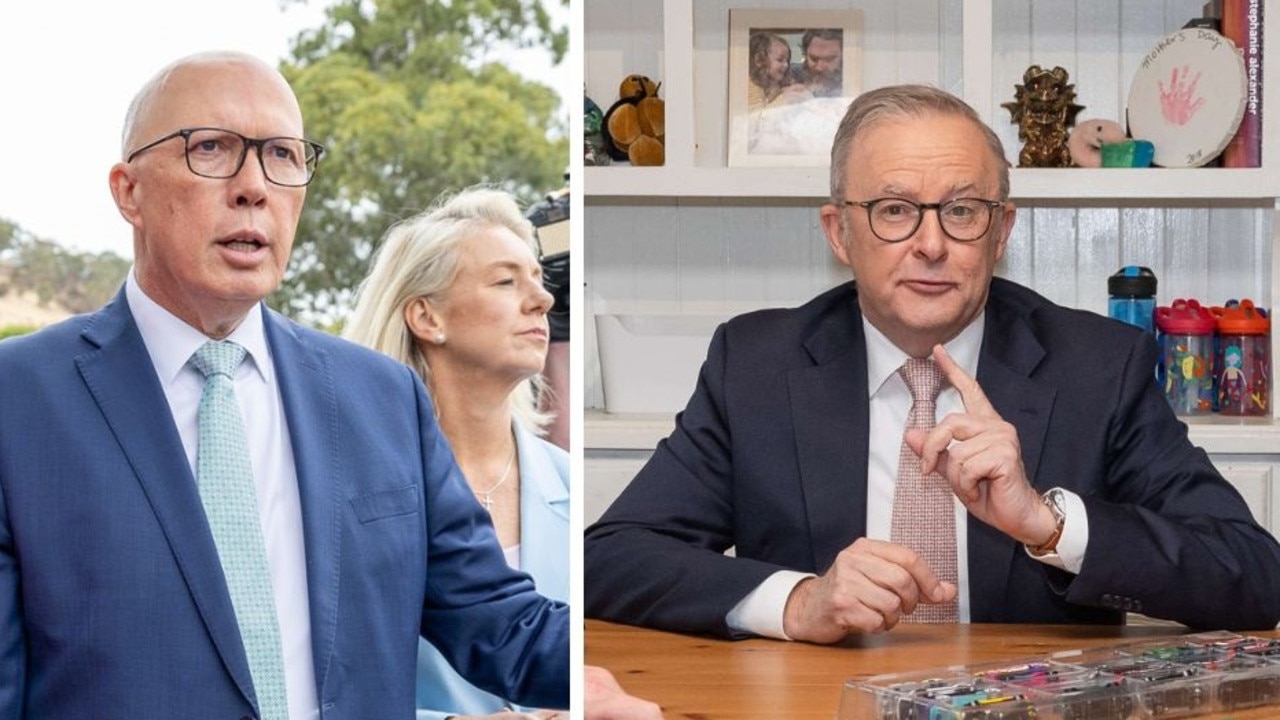Cruel irony of Joyce affair for tough, smart Vikki
TO USE one of the great media cliches, the journalist has become the story in the Barnaby Joyce scandal.
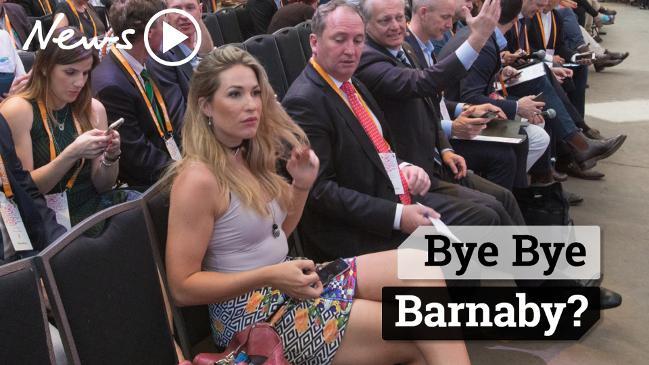
OPINION
THE media, like the Mafia, catch and kill their own.
In the endless rolling wake of the Barnaby Joyce bombshell, much has been made of what is public and what is private.
Does a publicly elected and publicly funded representative of a community have a right to close the shutters at the end of the day? Or, more precisely, does the public have the right to open them?
Indeed, what rights does anyone have in a land that has no nationally codified bill of rights? And what is simply the right thing to do?
The first thing to accept is that in the modern era such questions are meaningless. While in decades past a politician’s private indiscretions could have been — and indeed often were — buried by a complicit press gallery, in the information age that luxury is simply not an option. The story was always going to be published, the only question was when and by whom.
And so the outrage over the Daily Telegraph’s literally ball-tearing front page was not just pointless but absurd. As the editor Chris Dore observed, what was the alternative? Wait for Barnaby to start pushing a pram around Parliament House?
Our front page story tomorrow. Deputy Prime Minister Barnaby Joyce expecting baby in April with former staffer. @dailytelegraph pic.twitter.com/On634rJeyb
— Sharri Markson (@SharriMarkson) 6 February 2018
Frankly, the Tele couldn’t have kept the story quiet even if it wanted to. And even its fiercest opposition, the always morally upstanding Fairfax press, has publicly admitted that the main reason they didn’t report the affair is because they didn’t know, they didn’t have enough evidence or they simply didn’t care.
The reaction byFairfax and every other media outlet in the country would appear to indicate they certainly care now. The only difference is that the blanket coverage is now pretending to be a fig leaf. That all this white-hot national outrage has nothing to with the affair and only to do with the parliamentary payroll of who was working at which office, for how long and for how much.
Honestly, give me a break.
The fact is that everyone’s eyeballs are popping over the fact that the Deputy PM got caught with his pants down bonking a staffer and now he’s knocked her up and his private life and public career are both collapsed into one catastrophic mess.
Like all our guilty pleasures, we scramble for reasons to legitimise it — that it’s a matter of public interest or taxpayer funds — but even while both those things are true, that’s not the reason we care.
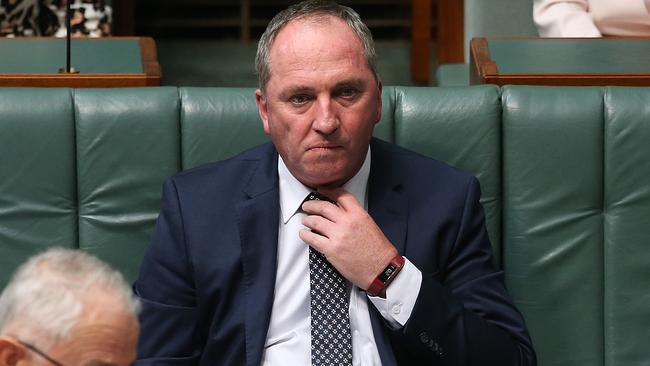
Literally a million times more taxpayer funds are at stake in the area of indigenous disadvantage and yet that subject could barely get a look in this week because we were all too obsessed with Barnaby Joyce’s sex life.
So let’s leave the faux indignation to one side. The story broke, the nation’s jaw hit the floor and we have all been caught with our eyes bursting out of our sockets and our doodles in the sweat sock.
The fact is it’s a bona fide cracking yarn and every journo worth their weight in salt knows that. They would always have known that.
And that includes the journo who is really at the centre of it all. Indeed, the one who really got the story first: Vikki Campion.
Like anyone who worked at the Tele over the last decade or so, Vikki was a dear colleague of mine and also a dear friend. She was tough, crazy, smart and tribal.
In short, she was the sort of friend I like and the sort of journo the Tele is built on. When she went after a story she went hard, and now the story is coming after her.
A few years ago I learned first-hand the experience of a journalist becoming the story and it is fair to say it is not a pleasant one.
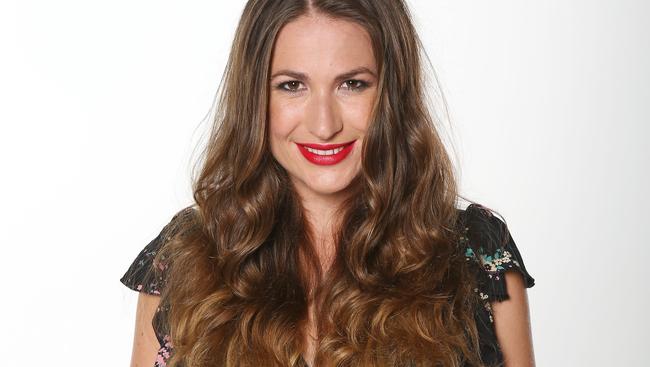
Indeed, the only useful analogy I have ever found comes from that great 20th century bible, The Hitch-Hiker’s Guide To The Galaxy, in which Ford Prefect tries to explain to Arthur Dent the trauma of going into hyperspace.
“It’s unpleasantly like being drunk,” Ford says.
“What’s so unpleasant about being drunk?” Arthur responds.
To which Ford replies: “Ask a glass of water.”
And that is the rub. We journalists drink plenty. We get drunk on other people’s stories and we get drunk ourselves, maybe sometimes to forget all the stories we tell.
Then sometimes we become the story that everyone else is drinking in. And it is nothing if not illuminating to go from the consumer to the consumed. To use one of the great journalistic cliches, the predator becomes the prey.
When it happened to me I realised that even as my life flashed before my eyes I just had to cop it sweet. It was probably no less than I had done to many a man or woman, for better or worse.
And that is perhaps the cruellest irony in Vikki’s case. As a Tele journo, she would have seen the stormfront building from a thousand miles away.
And for all the journos now turning on a former colleague, what could they do? If they had sat on the story they would be accused of collusion or corruption, cover-up or conflict of interest. And probably from many of the same people now decrying the fact that the story was published in the first place.
Who cares! How about we get photos of you and use them to show how reporters spend private time. Nice work on letting family know you were about to go to press. Hope you are proud of yourself. NO family deserves their private lives to be treated as Print/tv/radio fodder.
— Andrew Cole (@littlehorror01) 7 February 2018
Why wasn’t the Australian public informed of all this when they could have still expressed their opinion with their votes in the New England bi-election? Suppressing the news for political ends is not journalism. #BarnaBaby #auspol
— Neil Clugston (@neilclugston) 6 February 2018
Many years ago, the age of the anonymous journalist went the way of the shipping news. Now even the humble byline is not so much a credit as an indicator of one particular bias or another.
The writer has become the story, whether they are screwing the subject by words or deeds. Like it or not, we are all entangled.
Indeed, I often think that those in media and politics are condemned to be together: The exposer and the exposed, the archetypal showman and the armchair critic. We are destined to be welded like an unwilling double-helix, shouting and shagging into the ether. Unable to ever agree and yet unable to live apart.
Perhaps it is no wonder that politicians, like the media and the Mafia, catch and kill their own. Who else would even know what to do with us?



